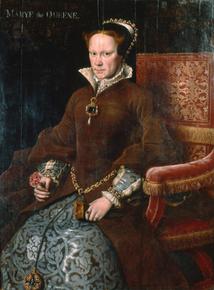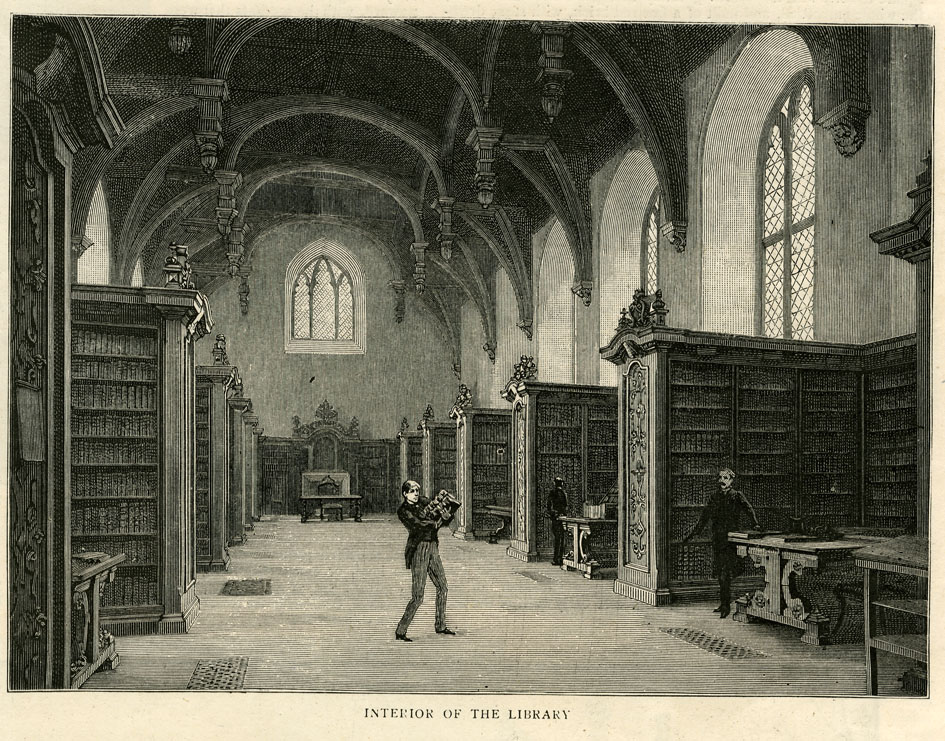Author Archives: admin
Events This Week
Monday 18 May
Oxford Bibliographical Society 5.15pm, Taylor Institution:
Jason Scott-Warren (University of Cambridge) The Archaeology of an Elizabethan Library: Reading Richard Stonley (c. 1520-1600)
Richard Stonley, an Elizabethan exchequer official and the first documented reader of Shakespeare, left two fascinating traces in the archives. The first comprises three volumes of journals covering periods of the 1580s and 1590s; the second is a booklist that was compiled when the contents of Stonley’s house on London’s Aldersgate Street were sold off to defray his alleged embezzlements in office in 1597. This paper will dig into both documents in order to contextualize a highly distinctive early modern library.
Tuesday 19 May
Crossroads of Knowledge Reading Group 2pm-4pm English Faculty S-R19:
The reading group will be looking at Thomas Traherne, contact Tim Stuart-Buttle for more information and some pre-circulated reading material: ts630@cam.ac.uk.
Neo-Latin Reading Group King’s College London, 5.15pm B7:
Maya Feile Tomes (University of Cambridge) The shield of Aeneas in the hands of Christopher Columbus — again. New thoughts on weaponry ekphrasis in the Neo-Latin Columbus epic corpus.
The Neo-Latin subgenre of the Columbus epic – which, just as it says on the tin, is a small collection of (early modern) Neo-Latin poems on the subject of Christopher Columbus’ voyages to America – has recently increased in size from five known examples to six. By the same token, the previously known instances of the intriguing ekphrastic phenomenon that is the American shield ekphrasis (shields depicting visions or quasi-maps of the newly encountered continent), of which there were formerly thought to be just two, now find themselves joined by a third example: one which, at over 150 lines, is indeed by far the longest of them all (and, for that matter, considerably longer than the Shield of Aeneas itself!) and, in many senses, very intriguing. In my talk, I will introduce the new text and its ekphrasis, considering how its ekphrastic representation of America interacts with precedents both classical and ‘Columbian’.
Wednesday 20 May
CRASSH Things That Matter Seminar ARB SG1 from 12.15pm – 2pm: ‘Reproduced Things’
Professor Helen King (Classical Studies, Open University)
The Material Womb In the western tradition of thinking about the body, wombs have not only been illustrated in a variety of shapes, but been made in a variety of materials: ancient terracotta ‘votive wombs’ meet today’s brightly coloured, perky knitted wombs, while eighteenth-century glass wombs give way to nineteenth-century rubber wombs. In this paper, as an aspect of a wider project concerning what has been thought to constitute a body ‘part’, I will consider the colours and materials used for wombs. I shall be arguing that something more than factual knowledge guides the visual representation of the womb, and that taking the long view changes the assumptions we now make, and the questions we put to the past.
Professor Michelle O’Malley (Art History, University of Sussex)
Botticelli and Reproduction In the art historical tradition of thinking about Renaissance painting, we conceptualise pictures as ‘autograph’ and ‘workshop’, admiring the former as, say, a Botticelli, and often denigrating the latter as a slavish and dull copy. But these two strands of production were not divergent: both were outputs of the business of a master painter, and both involved, in varying degrees, the input of the master and his assistants. In this paper, I will consider the production of Botticelli’s ‘workshop’ works, drawing particularly on technical analysis to discuss approaches to the manufacture of these material objects created for the Renaissance home. I will argue that ‘workshop’ work—Botticelli’s re-produced things—represent decisions he made about manufacture in the business and that their construction calls into question some of our most fundamental tools for assessing attribution and understanding how Renaissance painters worked.
London Festival of the Arts Lecture, 5.30pm-7.30pm UCL Roberts G08:
Carole Levin (University of Nebraska) Pregnancy, False Pregnancy, and Questionable Heirs: Mary I and her Echoes
London Renaissance Seminar Room G01, 43 Gordon Square:
6pm – 7:25pm Renaissance Ways of Seeing
How did people ‘see’ in the Renaissance? In this panel discussion Joanne Anderson (Birkbeck) will ask who coloured Mary Magdalen and why it matters, looking particularly at early Renaissance artworks produced in Alpine Italy. Paul Taylor (Warburg Institute) will explore the multivalent idea of ‘imitation’ in relation to life and art in the Renaissance. Stephen Clucas (Birkbeck) will explore the visionary ‘seeing’ (or ‘skrying’) of John Dee’s angelic conversations. Gill Woods (Birkbeck) will investigate how characters went invisible on the Renaissance stage, and what that tells us about theatrical seeing.
7:40pm – 9pm Keeping it in the family: Renaissance writing dynasties?
Kingsley and Martin Amis were not the first. In the Renaissance, a remarkable number of writers (and scholars) belonged to a family double act – most often father and son, or brother and brother, but sometimes father and daughter, or mother and daughter. In a culture in which literature and learning earned new kinds of social prestige, transmitting the craft or vocation of writing from one generation to the next could help achieve social ascent. Why did people write together – was the aim to create dynasties, within which writing was a central plank? Join Professor Neil Kenny (All Souls College, Oxford) to explore how in the French and European Renaissance literature and learning did and didn’t make families a new place in the world.
Thursday 21 May
IHR: Early Modern Material Cultures Seminar 5.30pm, Seminar Room A, V&A South Kensington Research Department, Cromwell Road, London SW7 2R:
Dr Pamela Long (Independent Scholar) Engineering, Topography, and the Culture of Knowledge in Late Sixteenth-Century Rome
Early Modern Visual Marginalia Colloquium – Summary
New University Library Entrance Hall Exhibition
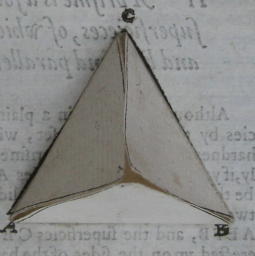 The Magic Number: Research at the Centre for Material Texts
The Magic Number: Research at the Centre for Material Texts
A display of recent discoveries by researchers at the Centre for Material Texts, an interdisciplinary group of academics working on the effect of the physical form on our interaction with texts. One case covers visual marginalia, the other Thomas Tresham’s fascinating obsession with geometry and the number three. More information is here.
Entrance Hall cases.
National Boundaries in Early Modern Literary Studies
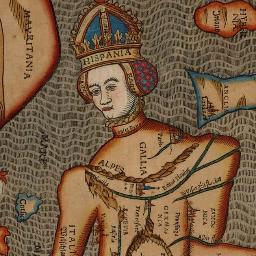 What are the benefits for researchers in early modern European literary studies (c. 1450-1700) of specializing in a particular national literature? What is gained by working across national boundaries and in more than one language? And how can research agendas respond better to the transnational and multilingual nature of literature at this time. This one-day symposium, organized in association with the Centre for Renaissance and Early Modern Studies at Queen Mary University of London, will be held on Friday 18 September 2015. The day will consist of papers and panel discussions, a roundtable, and an opening address given by Prof. Ingrid De Smet FBA (Warwick).The symposium is especially designed for early career researchers (including advanced postgrads) working in several disciplines (including English, Modern Languages and History) to reflect on challenges and opportunities for research in early modern European literary culture in different languages and that crosses national boundaries. A central aim is to give researchers working in different areas the chance to meet each other, make new contacts and exchange ideas. Expressions of interest in speaking at the event (including giving a 15-20 minute paper) are welcome; see website for more details. Thanks to generous support from a British Academy Rising Star Engagement Award (BARSEA), attendance is free, and lunch and refreshments will be provided. In order to attract researchers from across the country, the organizers are able to assist with travel expenses for participants travelling from outside London. Places are limited and will be reserved on a first-come-first-served basis. For more information about the event and how to register please visit http://www.earlymodernboundaries.com.
What are the benefits for researchers in early modern European literary studies (c. 1450-1700) of specializing in a particular national literature? What is gained by working across national boundaries and in more than one language? And how can research agendas respond better to the transnational and multilingual nature of literature at this time. This one-day symposium, organized in association with the Centre for Renaissance and Early Modern Studies at Queen Mary University of London, will be held on Friday 18 September 2015. The day will consist of papers and panel discussions, a roundtable, and an opening address given by Prof. Ingrid De Smet FBA (Warwick).The symposium is especially designed for early career researchers (including advanced postgrads) working in several disciplines (including English, Modern Languages and History) to reflect on challenges and opportunities for research in early modern European literary culture in different languages and that crosses national boundaries. A central aim is to give researchers working in different areas the chance to meet each other, make new contacts and exchange ideas. Expressions of interest in speaking at the event (including giving a 15-20 minute paper) are welcome; see website for more details. Thanks to generous support from a British Academy Rising Star Engagement Award (BARSEA), attendance is free, and lunch and refreshments will be provided. In order to attract researchers from across the country, the organizers are able to assist with travel expenses for participants travelling from outside London. Places are limited and will be reserved on a first-come-first-served basis. For more information about the event and how to register please visit http://www.earlymodernboundaries.com.Events This Week
Wednesday 13 May
Centre for Material Texts: Material-Textual Breakfast
9-10.30 am, Social Space, English Faculty
Please join us in the Social Space on the ground floor of the English Faculty for the first ever CMT material-textual-breakfast. This is an opportunity to meet people, to discuss current projects and to firm up plans for the future. Grab a coffee from the ARB (or wherever) and come over. Freshly baked cakes will be provided.
Early Modern Interdisciplinary Seminar 12-1.30PM, Green Room, Gonville and Caius:
Matthew Woodcock (University of East Anglia)
‘Tudor Soldier-Authors and the Art of Military Autobiography’
Faculty of History, Early Modern British and Irish History Seminar 5.15pm, Graham Storey Room, Trinity Hall:
John Walter, ‘Career Reflections’
Thursday 14 May
Cambridge Society for Neo-Latin Studies 5.30pm in the Junior Parlour, The Blue Boar, Trinity College
Stuart M. McManus (Harvard University/Warburg Institute) ‘Quo validis armis capta Manila fuit: inter-imperial rivalry in Bartolomé Saguinsín’s Epigrammata’
In the wake of the failure of the British Occupation of Manila at the end of the Seven Years’ War, a local Tagalog priest, Bartolomé Saguinsín (c. 1694-1772), composed a set of epigrams dedicated to the Lieutenant Governor of the Philippines that celebrated the triumph of Catholic Spanish and Filipino forces over the Protestant British. These epigrams, which I am currently editing, provide a window onto imperial and confessional rivalries in South East Asia in the context of rising British ambitions in the region. As the only surviving account of the Occupation by a Filipino, the work also speaks to the experience of the indigenous people of the Philippines caught in the midst of a global conflict between the “great powers”. In the paper, I will first address the historical and intellectual context of the Epigrammata, then focus on the text of my edition in progress and issues of intertextuality. (For a pdf of the text under discussion, please email Andrew Taylor: awt24@cam.ac.uk) Directions are here. For other inquiries, please contact Andrew Taylor. Sponsored by the Faculty of Modern and Medieval Languages.
Institute of Historical Research, University of London, Early Modern Italy Seminar 5.15pm Wolfson Room I, IHR, Basement
John Law (Swansea), ‘The Fall of the da Carrara: Insights’
To be followed by UK launch of the Festschrift for the historian of late medieval Padua and Venice, Ben Kohl (1938-2010).
Friday 15 May
Early Modern French Seminar, Fitzwilliam Museum 2pm Graham Robertson Study Room, Fitzwilliam Museum
The final seminar of the series will be given by Jane Munro, Keeper of Paintings, Drawings and Prints at the Fitzwilliam. In an appropriate conclusion to our examination of objects in the collections of the museum, Munro will discuss ‘Fitzwilliam’s French Connections‘: how the museum’s founder took a special interest in the objects and paintings he acquired from early modern France. Munro will be introduced by Lucilla Burn, Keeper of Antiquities. All welcome. For those unable to attend, a short account of the paper will be available on this site following the seminar.
Emmanuel College Library Special Collections Lecture 2.15pm Laing Centre Atrium, Emmanuel College Library
‘A Tale of Two Libraries (and one that got away) Lambeth Palace Library and Sion College Library in the Seventeenth Century’ Numbers are limited. Booking is essential and entry will be by free ticket only. Please book early by either e-mailing the College Library at library@emma.cam.ac.uk or telephone (01223) (3)34233. A ticket will be sent to you on receipt of booking.
Institute of Historical Research Seminar 5.15-7.15pm, Senate House, University of London
Jaap Geraerts (UCL) ‘Contested rights: the Dutch Catholic nobility and the jus patronatus, c. 1580-1720′
Saturday 16 May
Institute of English Studies, University of London, EMPHASIS (Early Modern Philosophy and the Scientific Imagination) Seminar 2 – 4pm, Room 104, Senate House (first floor)
Katherine Hunt (Queen’s College, Oxford) ‘The Art of Variation: Church Bells and Combinations in Seventeenth-Century England’
Pregnancy, False Pregnancy, and Questionable Heirs: Mary I and her Echoes
A lecture taking place at UCL on May 20th:
Pregnancy, False Pregnancy, and Questionable Heirs: Mary I and her Echoes
This illustrated lecture examines beliefs – medical and cultural – about phantom pregnancies in early modern England with specific connections to the political implications of Mary I’s false pregnancies. While historians have often described women who believed they were pregnant when they were not as pathetic or pathological, many medical texts of the period argued it was very difficult to tell a false pregnancy from a real one – or at least this was so until a baby was born or too much time had past. Mary’s phantom pregnancy not only had great political consequences for her reign, but more than a century later, it was brought up again as Protestants attempted to describe the 1688 pregnancy of Catholic Mary of Modena, wife of James II, as also false.
Carole is a Fulbright Scholar from the University of Nebraska where she is Willa Cather Professor of History. The event is part of UCL’s Festival of the Arts.
Events This Week
Wednesday 6 May
Dr Regina Schwartz, Northwestern University, will be speaking at the Renaissance Graduate Seminar (G-R05, 5.15pm), on ‘The Religious and Secular Renaissance’.
The CRASSH Things That Matter seminar, ‘Containing Things, Containing the Word and Containing the World’, will take place in ARB SG1 from 12.15pm – 2pm. Dr Lucy Razzall (English, Centre for Material Texts, University of Cambridge) will address ‘Containing the Word: Books and Boxes in Early Modern England’. Dr Anne Secord (History and Philosophy of Science, Darwin Correspondence Project) will speak about ‘Containing the World: Boxes, Books, and Botany in late C18th and C19th England’. See their abstracts here.
Thursday 7th – Friday 8th May
The Crossroads of Knowledge colloquium ‘Knowledge, Belief and Literature in Early Modern England’ will be taking place in the Graham Storey Room, Trinity Hall on Thursday and Friday. More information, and the programme and abstracts here.
Emmanuel College Library Special Collections Lecture: Giles Mandelbrote
Giles Mandelbrote, Librarian and Archivist, Lambeth Palace Library
‘A Tale of Two Libraries (and one that got away) Lambeth Palace Library and Sion College Library in the Seventeenth Century’
Friday 15th May 2015, 2.15pm, The Laing Centre, Atrium, Emmanuel College Library
Two notable ecclesiastical libraries were founded in London in the early seventeenth
century. Lambeth Palace Library was founded in 1610 as a resource for future Archbishops of Canterbury and benefited from the involvement and interest of several seventeenth-century archbishops, including William Sancroft (Archbishop of Canterbury, 1678-90). Sion College Library (now also at Lambeth) was established in 1629 as a library for the City of London clergy. This illustrated talk will explore the reasons for these two foundations and the contrasting ways in which they developed during the first century of their existence.
Numbers are limited. Booking is essential and entry will be by free ticket only. Please book early by either e-mailing the College Library at library@emma.cam.ac.uk or telephone (01223) (3)34233. A ticket will be sent to you on receipt of booking.
Lambeth Palace library, prints 025/060A
Birkbeck Early Modern Society Seminar Series
The Birkbeck Early Modern Society seminar schedule, all meetings are at 6.30pm. The first meeting will be held in Room 101, Birkbeck, 30 Russell Square. Later venues to be confirmed. For more information visit the Birkbeck Early Modern Society website. 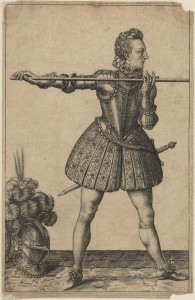
8 May 2015
Dr Linda Grant, From pornographic sparrows to Nashe’s dildo: exploring the erotic in early modern literature.
5 June 2015
Dr Alixe Bovey, University of Kent, The Guildhall Giants, Lord Mayors Pageants and political dialects 1600-1750.
3 July 2015
Professor Peter Mack, Renaissance Rhetoric as Questions about Literature, with special reference to Hamlet and Tom Jones.


